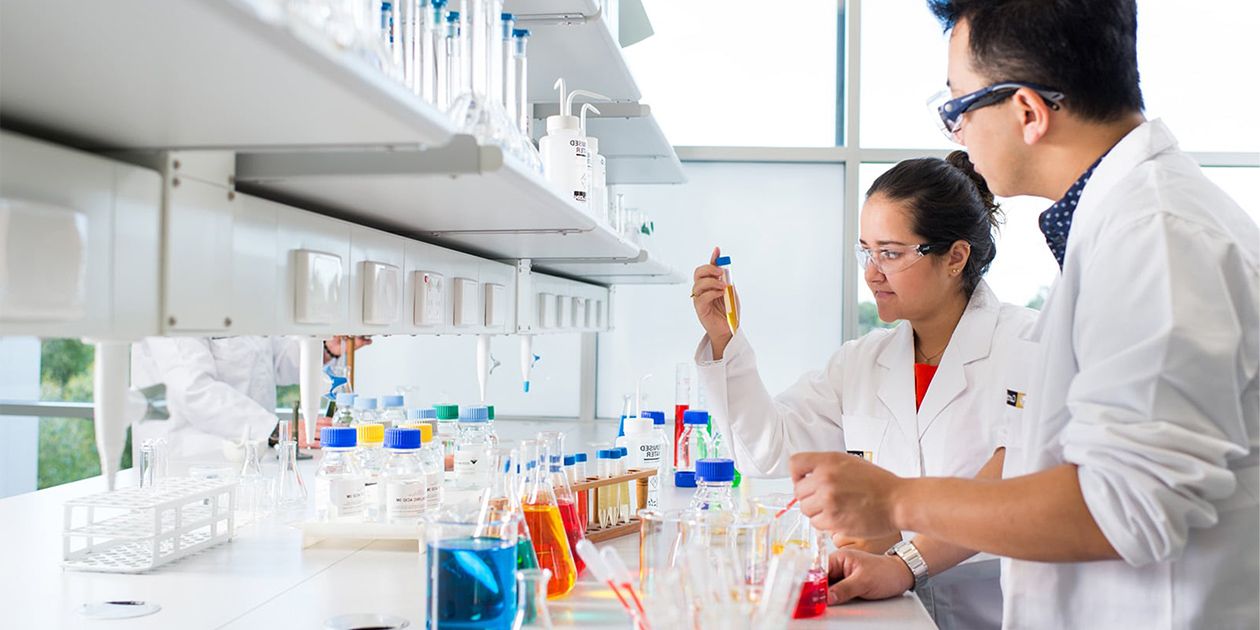Overview
Overview
In many areas of scientific endeavour, knowledge across multiple disciplines has provided innovative solutions to important problems. This course provides a well-rounded and diverse skill set, preparing you for a career that can span science, technology and mathematics.
Multidisciplinary science is a flexible course that allows you to design a major that suits your background and career goals. You have the freedom to personalise your study plan in consultation with Curtin staff, while meeting the requirements for a degree in science.
You can combine science disciplines from agriculture, biochemistry, biology, chemistry, computing, environmental, geology, mathematics and physics – which may open the door to various STEM careers or to further science education.
Alternatively, you can combine study of a science discipline with study from another faculty for careers in biomedical science, bioinformatics, genetics, food science, digital design, visualisation, management, professional writing or languages.
You can also use Multidisciplinary Science as a pathway into another course (such as those listed below) if you don't have that course's prerequisites.
Data Science, Engineering, Mathematics and Physics
If you'd like to study Data Science, Engineering, Mathematics or Physics but you don't have the prerequisite subject/s, you can complete them in Multidisciplinary Science, along with other units from your preferred course.
If you need to improve your ATAR, complete a minimum of 100 credit points in one semester (including the prerequisite subject/s you lack), and achieve a semester weighted average of more than 65%.
Medical Radiation Science
If you'd like to study Medical Radiation Science but don't have the mathematics or physics prerequisites, you can complete them in Multidisciplinary Science, along with other units from Medical Radiation Science.
If you need to improve your ATAR, complete a minimum of 75 credit points in one semester (including the prerequisite subjects you lack) and achieve a course weighted average of more than 80% to be considered. (Places are limited and entry is competitive, so you may need a higher average in a given enrolment period.)
See our handbook for more course information.
What jobs can the Multidisciplinary Science course lead to?
Complementary skills allow you to compete in industrial or government occupations, or develop a broad science background that can enrich a teaching career. Opportunities exist across a wide spectrum, depending on units chosen. For example, you could aim to become a professional science writer by combining science units with journalism.
You could also be ideally placed to pursue a career in secondary science education, through the development of a very broad science or mathematics background and the flexibility to include an education minor for a teaching specialisation. You could also choose to undertake postgraduate study to further expand your career options.
What you'll learn
- demonstrate knowledge and understanding in at least two scientific areas of study; recognise the limitations of scientific theories and the problem-solving capability of science; apply scientific principles and methodology to the solving of scientific problems
- plan and design with guidance, experiments to test scientific theories; perform measurements with due regards to accuracy and precision; provide solutions to study problems and experimental designs, thinking creatively to develop innovative solutions
- access a variety of existing information in the chosen scientific areas of study; determine the physical meaning, application, and societal implication of physical data and phenomena
- competently use information technology and a variety of tools to retrieve, manipulate, transform and present data and information
- communicate effectively, through the written word and by oral presentation of project work, within an ethical and professional framework of their chosen scientific area of study
- design, construct and use appropriate experimental apparatus or algorithms to solve problems; apply and develop computational and statistical processes to experimental data with due regard to accuracy and precision; recognise and assess the limitations of experimental apparatus or methods, or algorithms in solving scientific problems
- develop independent study and time management skills that will enhance learning capabilities in subsequent years of study and in professional life
- recognise the universal nature of scientific disciplines; recognise that while nature/science and its language are acultural, the application and ways of working may have cultural dimensions
- demonstrate a professional attitude to the conduct of project work; apply an ethical approach to analysis of scientific data and information
